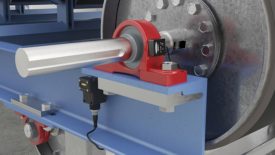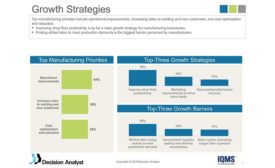Home » Industrial Internet of Things (IIoT)
Articles Tagged with ''Industrial Internet of Things (IIoT)''
Vision & Sensors | System Integration
Making the most of machine vision starts with understanding smart manufacturing and how machine vision delivers actionable data
Read More
Quality 101
How to Launch a Digital Twin Strategy for Quality Control
Producing a digital twin that opens opportunities for quality control improvements requires accurate, high-resolution data.
February 9, 2023
How SPC Can Lead to Zero Defects
Manufacturers are already producing data. For organizations to get full value from that information, they should choose a Statistical Process Control (SPC) solution that configures notifications, automatic alarms, emails, and process alerts.
July 12, 2022
Quality in Automation | Trends
Smarter Factories: Wireless Sensor Data Boosts Productivity, Prevents Downtime, And Reduces Costs
It's nearly impossible to imagine factories without sensors to identify products and guide mechanisms to pick up, sort, assemble, and package items.
April 8, 2022
Training in the Age of COVID-19
With the virus disrupting businesses worldwide, training employees presents new challenges. Experts comment on what can be done.
November 2, 2020
A Pandemic is No Match for Industry 4.0
While COVID-19-related disruptions threatening to upend manufacturing as we know it, IIoT systems make large-scale remote work possible, improve safety and help with supply chain issues.
September 28, 2020
Defining the Future of ERP in a Quality-Driven World
Manufacturers require ERP systems that can “learn” what excellent quality looks like.
September 1, 2019
The State of Sensors in the Industrial IoT
Better quality is possible with IO-Link and machine learning.
August 8, 2019
Sponsored Content
4 Steps for Data Collection along the Industrial Internet of Things Path
July 15, 2019
Stay in the know with Quality’s comprehensive coverage of
the manufacturing and metrology industries.
eNewsletter | Website | eMagazine
JOIN TODAY!Copyright ©2025. All Rights Reserved BNP Media.
Design, CMS, Hosting & Web Development :: ePublishing











